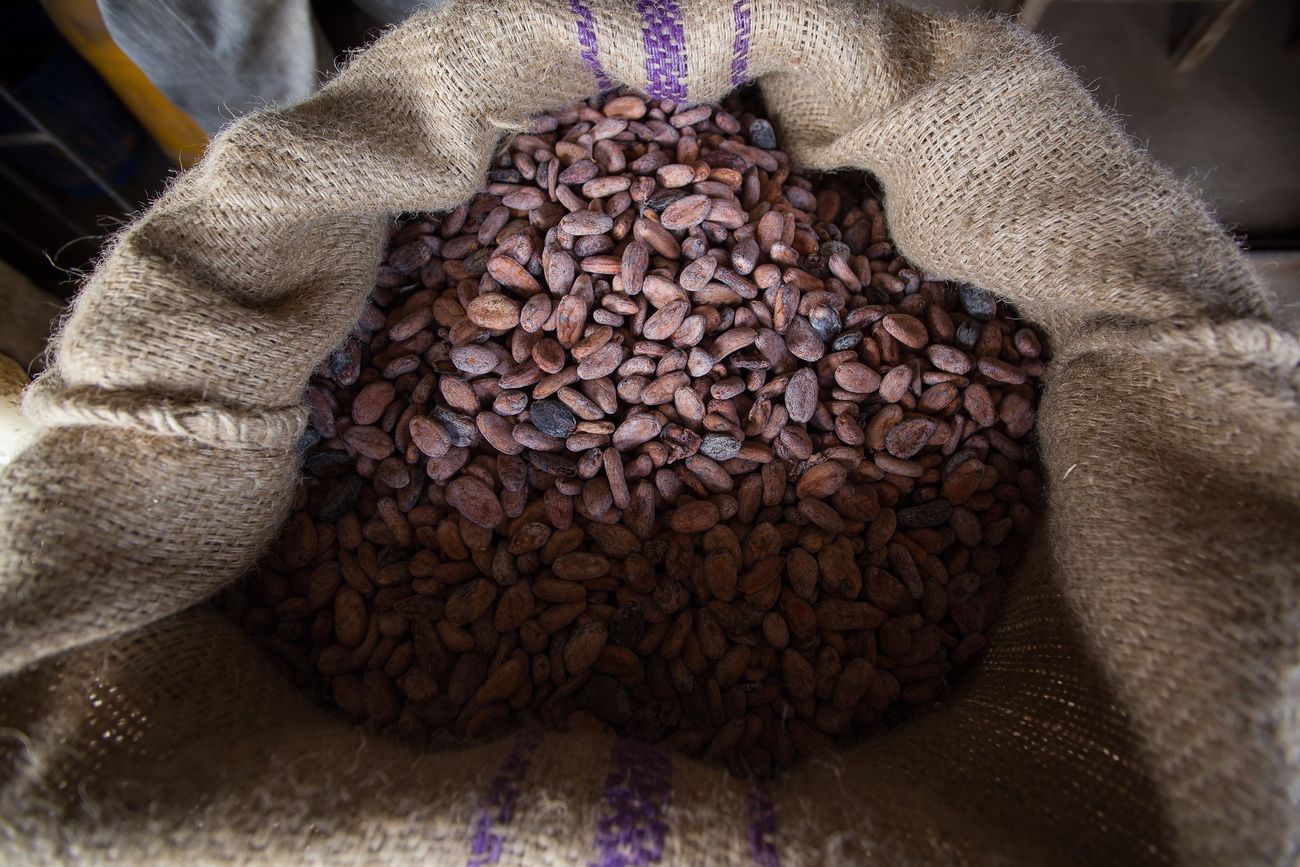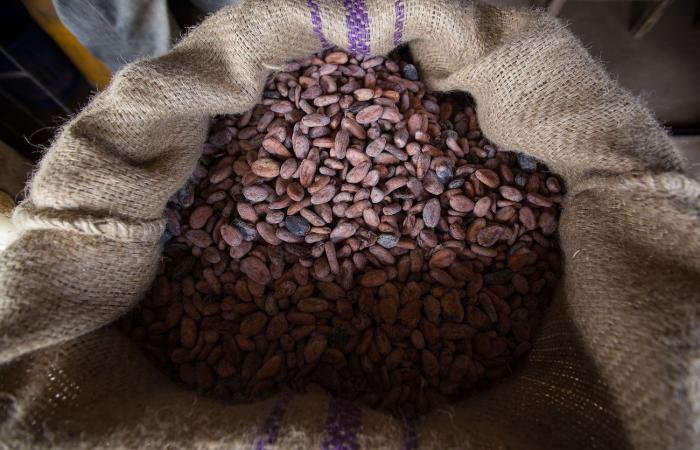Zurich, the center of Switzerland's financial industry, appears to have rebounded from the collapse of Credit Suisse.
Keystone / Michael Buholzer
Solid growth prospects, a search for efficiency in the food industry and a financial sector which is recovering after the Credit Suisse crisis: the journalists from swissinfo.ch present to you the main developments which await the Swiss economy in 2025.
This content was published on
December 25, 2024 – 08:00
The Swiss economy has recently proven resilient to global economic volatility and inflationary pressures. In 2025, the economy is expected to grow at a slightly faster rate, but remain below its potential. The Organization for Economic Cooperation and Development (OECD), for example, raised its growth forecast for Switzerland's gross domestic product (GDP) from 1.4% to 1.5% for the coming year.
The Swiss National Bank (SNB) faces the ongoing challenge of finding a balance between controlling inflation and supporting economic growth. Interest rates could remain low, although the central bank may adjust the stance of its monetary policy based on global trends and domestic inflationary pressures.
A strong labor market, particularly in high-skill sectors such as finance, pharmaceuticals and technology, will likely support consumption levels. Inflation should be moderate, which will provide relief to Swiss households after a period of rising costs. In many sectors, the salary increases decided for 2025 amount to 1.7-2% and are higher than inflation, according to the Swiss union Unia. This should translate into an improvement in real wages.
Here are our forecasts for six key sectors in Switzerland:
1. The Swiss pharmaceutical industry in uncertainty
The Press
Switzerland's two major pharmaceutical companies, Roche and Novartis, will look to gain momentum in 2025 after internal restructurings. In November, Novartis raised its sales forecast for 2023-2028 in a sign of confidence after top-selling drugs beat quarterly growth targets.
Roche hopes a series of new weight loss drug candidates will deliver positive results in 2025 and help cement its place in a market that analysts say could reach $100 billion (880 million Swiss francs) in ten years. Despite being a newcomer to the obesity field, Chief Executive Thomas Schinecker told reporters in July that he believed Roche could bring the new drugs to market “much faster” than investors expected. foresee it.
The optimism of Swiss multinationals, however, faces headwinds. Donald Trump's return to the White House could lead to sweeping changes in drug pricing, public health and biotechnology financing in the industry's largest market.
Any attempt by Donald Trump to expand drug price negotiations agreed under Joe Biden will likely face strong resistance from the industry. Pressure on drug prices is increasing beyond the United States. Even in Switzerland, companies will have to justify the price of new therapies launched amid rising healthcare costs.
Swiss pharmaceutical and biotechnology companies are also bracing for disruptions to global trade if the United States and China continue to isolate each other. The life sciences industry, which represents 40% of Swiss exports, depends heavily on global cooperation. Any measure to cut off part of the world from the supply chain “is neither sustainable nor good for Switzerland,” says Michael Altorfer, who heads the Swiss Biotech Association.
2. Food prices expected to stabilize in 2025

Emmanuel Adegboye / Keystone
The continued rise in prices of raw materials such as coffee and cocoa has put Swiss food companies in a bind. Six months after Mark Schneider, the former CEO of Nestlé, called rising food prices “the event of the last 50 years,” he is no longer at the company. Nestlé's sales were falling and the general feeling was that the company had driven away inflation-hit consumers, who had turned to cheaper products. It will be difficult to turn this situation around, with Nestlé's new CEO, Laurent Freixe, having warned of a “soft demand environment” when publishing third-quarter results in October.
In 2025, it will be about trying to bring back price-conscious consumers. This task will be painful. Food companies will have to absorb rising raw material prices without passing them on to consumers.
Serious cost reductions will therefore be necessary. In November, Nestlé announced that it planned to cut costs by 2.5 billion Swiss francs by 2027. The food industry is also getting rid of excess capacity. For example, the Hero Group is closing its jam factory in Lenzburg, Switzerland, and transferring production to its existing factory in Murcia, Spain.
Despite cost-cutting measures, Swiss chocolate lovers will have to continue paying more for their treats. Recent record highs in cocoa prices will not be fully absorbed by chocolate makers like Lindt & Sprüngli. Swiss chocolatiers can therefore expect stagnation or even a decline in sales volume in 2025 and a loss of market share to cheaper competitors who use less cocoa in their products.
3. The financial sector on the road to recovery

Keystone / Jean-Christophe Bott
The Swiss financial sector appears to have rebounded after the brutal collapse of Credit Suisse last year. The stock market recovery has boosted the assets of the world's richest people, which is good news for the well-established Swiss wealth management industry. But uncertainties and clouds continue to lurk, never far away.
The Credit Suisse saga is far from over, despite the apparent perfect integration into its great rival UBS. A parliamentary report into the debacle will likely lead to another regulatory shake-up next year. The Swiss government has already proposed a series of measures, including additional capital requirements for banks and strengthening the powers of the financial regulator.
Banks and asset managers are also campaigning against new regulations regarding sustainable finance, as they face increased pressure from non-governmental organizations.
The Swiss stock exchange, under the leadership of new CEO Bjørn Sibbern, will observe the market reaction to the new Trump presidency starting next year.
And the cloud of money laundering also affects the Swiss banking sector. While UBS was cleared of allegations linked to the Bulgarian mafia towards the end of the year, private bank Lombard Odier was accused of money laundering by Swiss prosecutors.
4. Swiss watchmakers are no longer at the party

Afp Or Licensors
After three years of post-Covid euphoria, the Swiss watch industry returned to its feet in 2024. Watch exports fell by almost 3% in value (provisional figures), due in particular to the very marked drop in the demand in China (-26% at the end of November) and Hong Kong (-20%).
No fundamental improvement is expected for 2025. “The lack of appetite of Chinese consumers for luxury products is the main reason for this complicated situation for the sector,” indicates Jean-Philippe Bertschy, watch expert at the Vontobel bank. , at swissinfo.ch. Other markets have also started to record negative developments in recent months.
The downward trend in the number of watches exported and the consolidation of strong brands is expected to continue. “Premium brands that offer quality, emotional products that are strongly connected to their customers will continue to gain market share. The year promises to be very difficult for other brands as well as for all suppliers in the industry,” believes Jean-Philippe Bertschy.
5. Gloomy outlook for the machinery industry

Keystone / Michael Buholzer
For the second year in a row, the Swiss machinery, electrical equipment and metals industry (MEM industry) experienced a drop in turnover in 2024 (-4% over the first nine months of the year). The industry's umbrella association, Swissmem, attributes this economic weakness to the drop in demand from the EU, and in particular from Germany.
Germany and its automotive sector in crisis is a source of major concern for Swiss subcontractors. Exports to the Swiss industry's largest sales market fell by 8.4% in the first nine months of the year.
A recovery is not expected anytime soon. “In the best case scenario, we can expect stabilization next year,” said Stefan Brupbacher, director of Swissmem, in a press release.External link published in mid-November. On the other hand, if a 'trade war' were to break out between the United States, China and the EU, it would drag the Swiss tech industry, which exports 80% of its products, even further down.”
6. Swiss tourism in the stabilization phase

Keystone / Laurent Gillieron
The Swiss tourism sector had a very good 2024 vintage, with overnight stays expected to reach a new record, at nearly 47 million (+14% compared to 2023). The coming months also look good: the economic research center of the Swiss Federal Institute of Technology Zurich (KOF) predicts an increase in overnight staysExternal link of the order of 0.8% this winter.
Travelers from the United States should continue to benefit from the strong dollar. During the summer, the number of nights recorded for tourists from North America had already seen an increase of nearly 300,000 (+14%) after a significant increase of 26% in 2023.
Despite the weakening of the euro and the continuing recession in Germany, the KOF expects a 2% growth in overnight stays from European tourists this winter. As for local tourists, they should in all likelihood “remain the largest group of visitors”, even if a further decline (-0.5%) in favor of distant trips is expected.
Regarding the 2025 summer season, KOF expects a slight increase of 0.2% in overnight stays. While the European market should remain stable, uncertainty reigns regarding China. Despite slow growth, total overnight stays from Chinese guests are expected to only reach 60% of the pre-Covid crisis level (2019).
Text reread and verified by Samuel Jaberg & Reto Gysi von Wartburg












